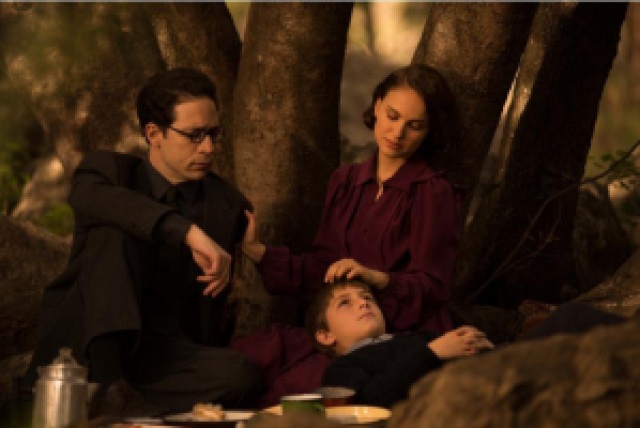Natalie Portman’s Directorial Debut: A Tale of Love And Darkness Is A Reminder of War’s Mental Cost
Natalie Portman stars, writes, and directs A Tale of Love And Darkness: the autobiographical novel by Israeli author Amos Oz. The film follows Amos (Amir Tessler) as a child growing up in the very first years of the Israeli state, but it is Natalie Portman’s portrayal of his mother, Fania, that keeps you riveted. Fania is a tragic reminder of war’s effects on mental health.
When you think of war wounds, you think physical. A man loses his leg, a woman loses her life, or a child loses his sight. These are grim, gruesome scenarios related to war. Yet, not many, consider the hefty cost of mental health and stability. Hearing bombs everyday, learning of another friend’s death, and wondering if your walk to the corner grocery store will be your last are just some of the repetitive, destructive thoughts that could make war tear a mind apart. Enter the character of Fania, beautifully played by Portman, to remind us that war can leave a spirit broken without ever fracturing its body.
Although the film has wonderful shots of Israel and powerful quotes on resilience and survival, the character of Fania is its beating heart. As Amos recounts the memories of his childhood, what he is trying to remember is when did his mother fall into such an unconquerable depression. Was it when Israel and Palestine first began to bomb each other? Was it when their family began living in a makeshift bomb shelter from their basement? Was it when her best friend was killed by a sniper bullet while doing laundry? What pushed Fania over the edge? The truth is…..everything. I had not realized how emotionally and mentally draining war can be until I saw this film. For some reason, its subtle maneuvering throughout the lives of this Jewish family broke me into realizing that war does not only take lives; it takes dreams.
As a dreamer myself, I cannot imagine heading into such a sadness where even dreaming to dream seems hopeless. All her life, from WWII and onward, Fania only knew of war and its ability to take the beauty of life without any remorse or thought. War is oddly unbiased. It is a cold act that did not care, during WWII, that Fania was a bright child with an imagination bolder than the wind. It also did not care that Fania was a loving woman that adored life and her child. War simply did not care for Fania’s heart and all it had to offer. Thus, when it was crushed by the Israeli- Palestine conflict, it was her spirit that died and left her body to its eventual demise. She, like all of us, could not live without her dreams, and war had killed them.
Natalie Portman has done a strong directorial debut. After seeing this film, I look forwards to her future in such a role. She has created an intelligent film on a spirit’s frailty and inability to heal when all it knows is violence. Moreover, she has given audiences a cinematic tale on the importance of dreams, and why peace must be achieved to further them. A Tale of Love And Darkness comes out in theaters on August 19.

